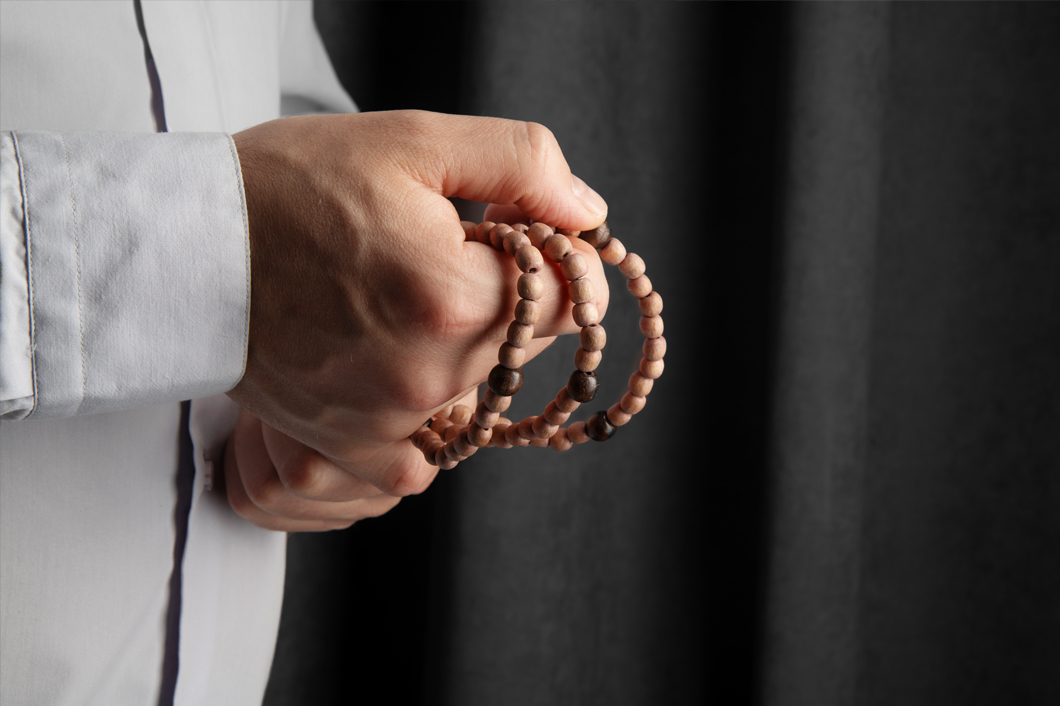Question
Is it permissible to do dhikr, recite naats, or listen to stories of the Prophet ﷺ on Mawlid?
Bottom Line
If Mawlid was Sunnah, the Sahabah would’ve celebrated it first.
Quick Answer
Remembering the Prophet ﷺ through dhikr, poetry, and seerah is good. But fixing his birthday as a religious ritual is an innovation. Neither the Prophet ﷺ nor the Companions did it, and most scholars ruled Mawlid impermissible. A minority allowed it as cultural remembrance, not as Sunnah.
Key Takeaways
- Dhikr and seerah are valid anytime, but tying them to Mawlid is an innovation.
- True love for the Prophet ﷺ is shown through Sunnah acts, not invented rituals.
Detailed Answer
Mawlid gatherings with dhikr, naats, and stories were never practiced by the Prophet ﷺ or his Companions.
Those who celebrate this occasion and participate in it do so out of love for the Prophet (blessings and peace of Allah be upon him), and loving Allah and His Messenger are among the greatest acts of worship and signs of faith. So whatever is done for that purpose is undoubtedly done by way of worship and seeking to draw closer to Allah.
Based on that, we may note that the Companions of the Prophet (blessings and peace of Allah be upon him) had a greater love and respect for him, and were more aware of his rights, than those who came after them, so whatever did not constitute part of the religion for them does not constitute part of the religion for those who come after them.
It was this principle that ‘Abdullah ibn Mas‘ood (may Allah be pleased with him) quoted to the people of the halaqah who had gathered to remember Allah in the mosque, and were all counting their dhikr with pebbles. He said to them: By the one in Whose hand is my soul, you are either following a path that is more guided than the path of Muhammad (blessings and peace of Allah be upon him) or you have opened the door to misguidance!
They said: By Allah, O Abu ‘Abd ar-Rahmaan, our intention was nothing but good.
He said: And how many people who aimed for good never attained it!ad-Daarimi in his Sunan (210)
Allah says:
“This day I have perfected for you your religion and completed My favor upon you.”
The Prophet ﷺ said:
“Whoever introduces into this matter of ours something that is not from it, it will be rejected.”
Scholars such as Ibn Taymiyyah, al-Shatibi, and the Standing Committee for Fatwa declared Mawlid an innovation. Shaykh Ibn Baz also wrote extensively against it. A minority of later scholars tolerated it as cultural remembrance, if free of sinful acts, but not as Sunnah.
Issues & Precautions
- Mawlid confuses religion with culture, adding rituals with no basis.
- It risks excess, exaggeration, and practices outside Sunnah.
- Some gatherings include impermissible acts, free mixing, or shirk expressions.
What You Can Do Instead
| Do | Don’t |
|---|---|
| Study the seerah year-round to deepen love for the Prophet ﷺ. | Restrict his remembrance to the 12th of Rabi‘ al-Awwal. |
| Send abundant salawat daily (Allahumma salli ‘ala Muhammad). | Invent new rituals in his name that are not taught in Sunnah. |
| Fast on Mondays, as the Prophet ﷺ did, and linked to his birth. | Treat Mawlid like an Islamic festival alongside Eid. |
| Hold gatherings for seerah, learning, and dhikr any time. | Call a gathering “Mawlid” or attach religious weight to it. |
What This Means for You
Loving the Prophet ﷺ is shown by Sunnah daily dhikr, salawat, fasting Mondays, and lifelong seerah study, not Mawlid rituals. This keeps love pure and free of innovation.
And Allah knows best.
References
Primary Sources
Qur’an
- Al-Ma’idah 5:3: Religion perfected, no additions required.
Hadith
- Sahih Muslim 1718: Whoever introduces innovations, it is rejected.
Secondary Sources
- Ibn Taymiyyah, Iqtida’ al-Sirat al-Mustaqim: On Mawlid as innovation.
- Al-Shatibi, Kitab al-Iʿtisam: Principles of bid‘ah.
- Standing Committee for Fatwa (Vol. 3, pp. 30–31): Mawlid not part of Islam.
- Shaykh Ibn Baz, Majmuʿ Fatawa: On the prohibition of Mawlid.
- Ad-Daarimi in his Sunan (210): Performing dhikr with pebbles in circles.
Modern Research & Reports
- Dar al-Ifta Studies: Cultural expressions tolerated but not rituals.
Was this helpful?
Leave Your Comments
© Copyright 2025, All Rights Reserved

